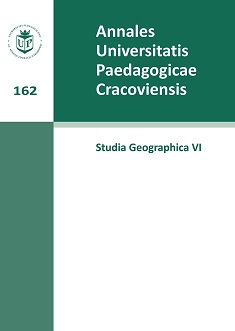Factors influencing the quality of a teacher’s work
Keywords:
effectiveness, the quality of education, quality of a teacher’s work, teacher’s personality, interpersonal relations, educational activitiesAbstract
The constant concern for the improvement of the quality and the effectiveness of teaching and upbringing interactions causes the need for the analysis of the conditions of such process. The purpose of the author was to present some factors influencing the effectiveness of teachers’ work, and in particular to make an attempt to identify the impact of the personality and teaching style on the quality of education process. The ideas included in the prepared paper are based on the assumption that the effectiveness of teachers’ work is influenced by personality factors, environmental conditions, and the quality of interpersonal relations between pupils and teachers.References
Banach, Cz. (1995). Cechy osobowościowe nauczycieli. Nowa Szkoła, 3, 10.
Dejnaka, A. (2003). Zasoby ludzkie. Planowanie i zarządzanie. Gliwice: Wyd. Helion, 133–134.
Delors, J. (1998). Edukacja: jest w niej ukryty skarb. Warszawa: Wyd. UNESCO.
Dzierzgowska, I. (2000). Mierzenie jakości pracy szkoły podstawowej. Warszawa: Wyd. CODN.
Dzierzgowska, I., Wlazło, S. (1996). Mierzenie jakości pracy szkoły. Radom: Program TERM.
Gaś, Z.B. (2001). Doskonalący się nauczyciel: Psychologiczna analiza rozwoju profesjonalnego nauczycieli. Lublin: Wydawnictwo Uniwersytetu Marii Curie-Skłodowskiej, 33–34.
Kościelniak, M. (2004). Zrozumieć Rogersa. Studium koncepcji pedagogicznych Carla R. Rogersa. Kraków: Oficyna Wydawnicza „Impuls”.
Kujawiński, J. (1998). Współdziałanie partnerskie w szkole uczniów z nauczycielami i uczniów ze sobą. Poznań: Wyd. Eruditus.
Kwieciński, Z. (2000). Tropy – ślady – próby. Studia i szkice z pedagogiki pogranicza. Toruń: Wyd. Edytor.
Łaguna, M., Gałkowska. A. (1994). Umiejętności społeczne i ich znaczenie w pracy nauczyciela. W: A. Gała (red.), Wybrane zagadnienie z psychologii wychowawczej. Wrocław: Wydawnictwo św. Antoniego.
Pawlak, R. (2005). Dylematy polityki edukacyjnej wobec nauczycieli. Polityka Społeczna, 10.
Pines, A.M. (2000). Wypalenie – w perspektywie egzystencjalnej. W: H. Sęk (red.), Wypalenie zawodowe. Przyczyny, mechanizmy, zapobieganie. Warszawa: PWN.
Prucha, J. (2006). Pedeutologia. W: B. Śliwerski (red.), Pedagogika. T. 2: Pedagogika wobec edukacji, polityki oświatowej i badań naukowych. Gdańsk: Wyd. GWP.
Pyżalski, J. (2010). Jakie działania można podejmować, by ograniczyć stres zawodowy nauczycieli? W: J. Pyżalski, D. Merecz (red.), Psychospołeczne warunki pracy polskich nauczycieli. Pomiędzy wypaleniem zawodowym a zaangażowaniem. Kraków: Oficyna Wydawnicza „Impuls”.
Radwan, Z. (1997). Rozwój organizacyjny szkoły. Antologia 3. Warszawa–Radom: Wyd. Instytut Technologii Eksploatacji.
Tucholska, S. (2003). Wypalenie zawodowe u nauczycieli. Lublin: Wyd. KUL.
Wawak, T. (2001). Zarządzanie a jakość pracy i życia. W: T. Wawak (red.), Zmieniające się przedsiębiorstwo w zmieniającej się politycznie Europie. T. 4. Kraków: Wydawnictwo Informacji Ekonomicznej.
Włodarski, Z. (1994). Pożądane cechy nauczyciela i związane z nimi interakcje. W: M. Przetacznik-Gierowska, Z. Włodarski (red.), Psychologia wychowawcza. T. 1. Warszawa: PWN.
Downloads
Published
Issue
Section
License
The submission of a paper to be published is synonymous with an agreement to transfer the copyright free of charge from the author to the publisher. The author also agrees to permit the publisher to publish the paper in printed form, open access online form, digital library form and other digital platforms with which the publisher has or will have a publishing agreement. Furthermore, the author agrees to not limit the number of copies that may be printed or issued by the publisher. In the case of co-authored papers, it is assumed that the corresponding author is authorized to represent the remaining co-authors in this respect. Authors are requested to sign a copyright declaration.

